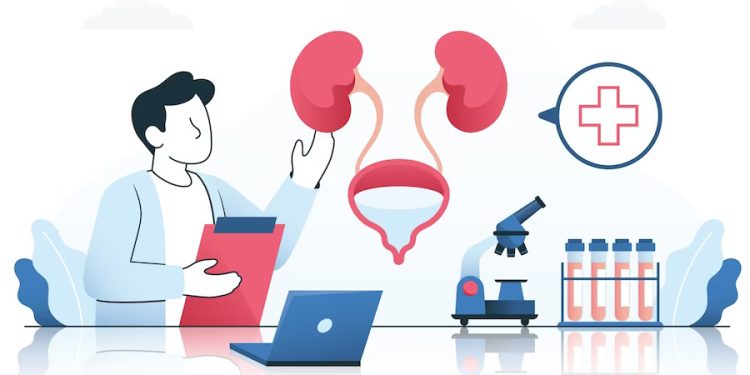Gallstones are hardened bile deposits that can form in the gallbladder, a small organ under the liver. They come in different sizes and can cause immense pain and other uncomfortable symptoms. Even though many things can cause gallstones, you can greatly reduce your risk of getting them by eating healthy and making changes to your lifestyle. In this article, we’ll talk about different ways to keep your digestive system healthy, identify gallbladder stone symptoms, and prevent gallbladder stones.
Eat a low-fat, well-balanced diet
One of the best ways to avoid getting gallstones is to eat a healthy, balanced, and low-fat diet. When you eat too many unhealthy fats, your body’s production of bile can increase uncontrollably. It can cause gallstones to form.
Choose foods that are high in fiber, lean proteins, and healthy fats, like:
- Whole cereals
- Fruits and vegetables
- Fish and poultry
- Seeds and nuts
- Olive oil
Gallstones can be prevented by losing weight gradually and maintaining a healthy weight. But it’s important not to lose weight quickly because that can also lead to gallstones.
Stay active
Regular exercise is good for your health in many ways, including keeping gallstones from forming. Exercise helps keep the body at a healthy weight, improves digestion, and keeps the gallbladder working at its best. Aim for at least 150 minutes of moderate-intensity aerobic exercise or 75 minutes of vigorous-intensity aerobic exercise per week, plus two or more days of muscle-strengthening activities.
Don’t eat too many refined sugars and carbs
Getting a lot of refined sugars and carbs in your diet can cause gallstones to form. These foods can cause blood sugar levels to change quickly, which can in turn affect how much bile is made and how well the gallbladder works. Choose complex carbs like those in whole grains, fruits, and vegetables, and eat less processed food and sugary treats.
Take in a lot of water
Staying well-hydrated is important for good health in general and for avoiding gallstones. Water helps the body digest food and flush out toxins, including ones that can cause gallstones to form. Aim to drink at least 8 glasses of water every day, or more if you are active or live in a hot place.
Don’t drink too much
Moderate alcohol use has been linked to a lower chance of getting gallstones, but drinking too much can have the opposite effect. To lower the risk of gallstones, drink alcohol in moderation, which means no more than one drink per day for women and no more than two drinks per day for men.
Gallbladder stones can be avoided by eating well and living wisely. By eating a well-balanced, low-fat diet, staying at a healthy weight, staying active, limiting refined sugars and alcohol, and staying well-hydrated, you can reduce your chances of getting gallstones.
You should also know the following about gallbladder stones and how to avoid them:
Learn about your risk factors.
Some people are more likely to get gallstones because of their age, gender, family history, or race. If you know what makes you more likely to get gallstones, you can take steps to avoid them.
- Keep an eye on your medicines: Some drugs, like those that lower cholesterol, hormone replacement therapy, and birth control pills can make it more likely that gallstones will form. If you are taking any of these medicines, talk to your doctor about the possible side effects and if there are any other options.
- Be careful when fasting or going on a crash diet: Gallstones can occur more often if you go on a crash diet or fast for a long time. When you do these things, the bile in your gallbladder can get more concentrated, which can cause stones to form. Stick to a balanced diet and talk to a doctor about safe ways to lose weight.
- Regular check-ups: If you go to your doctor for regular check-ups, he or she may be able to find gallstones early on, even before you feel sick. Early detection and treatment can keep problems from happening and make it more likely that the treatment will work.
Knowing the signs of gallbladder stones, knowing what puts you at risk, and making the necessary changes to your diet and lifestyle can help you avoid gallstones and keep your gallbladder healthy.
Symptoms of gallbladder stones can include severe abdominal pain, especially in the upper right abdomen, and nausea or vomiting. These symptoms may be accompanied by fever, chills, jaundice, or changes in stool color. Identify these gallbladder stone symptoms and consult a specialist at a reputed hospital for personalised advice on how to avoid gallstones and keep your digestive system in good shape. By taking steps to improve your diet and way of life, you can keep gallbladder stones from forming and can also improve your overall health and live a happier, healthier life.






